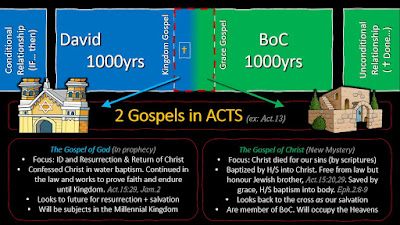The Debt You Don’t Have to Repay: A Lesson in Grace and Forgiveness
When we rightly divide the Word of Truth, we discover the liberating difference between the conditional forgiveness taught under the Gospel of the Kingdom and the unconditional, finished forgiveness given to us under Grace. In Matthew 18:21–35, Jesus tells the parable of the unforgiving servant: a man forgiven of an impossible debt of 10,000 talents, yet unwilling to release his fellow servant from a mere 100 pence. The King, angered by this hypocrisy, revokes his mercy and delivers the servant to the tormentors. To Israel under the Law, this was a sobering warning—“Forgive, and ye shall be forgiven” (Luke 6:37). Their forgiveness was conditional, revocable, and tied to their performance. Jesus Himself concluded, “So likewise shall my heavenly Father do also unto you, if ye from your hearts forgive not every one his brother their trespasses” (Matthew 18:35).
But when we turn to Paul, the Apostle of the Gentiles, we see the glorious shift brought by the Cross. Forgiveness is no longer a transaction waiting to be revoked; it is a finished fact. Paul writes, “And be ye kind one to another, tenderhearted, forgiving one another, even as God for Christ’s sake hath forgiven you” (Ephesians 4:32). Notice the tense—hath forgiven you. Colossians 2:13 confirms it: “And you, being dead in your sins… hath he quickened together with him, having forgiven you all trespasses.” Under Grace, God cannot “un-forgive” you, because Christ already bore the torment for your debt. The ledger is not merely canceled—it is paid in full at Calvary.


















